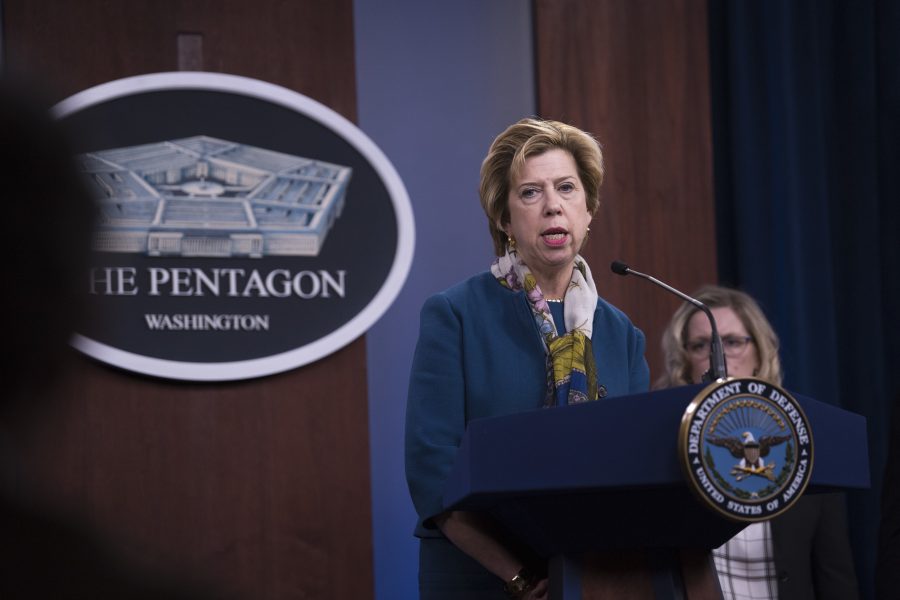Most of the defense industry is working, but conflicting signals from state governors and the federal government made it necessary to let everyone know that such work is “critical” and must continue, Pentagon acquisition and sustainment chief Ellen Lord said March 25. She also said the Defense Department is stepping up efforts to reach out to small businesses, fearing that “adversary capital” will try to take advantage of the uncertainty.
“We’ve had a few specific issues, such as Boeing, where they had to shut down an operation, … but I will tell you, the vast majority are working. They do want to work,” Lord said. Boeing announced a work stoppage at its Puget Sound, Wash.-area plants, where USAF’s new KC-46 tankers are being manufactured, citing a need to deep clean facilities after several workers tested positive for COVID-19.
Company chief executive officers “are reaching out to us to ensure that they can continue operations,” Lord said, and this is why she put out memos last weekend saying that defense work is critical and must continue, “so we wouldn’t have law enforcement stopping people on the way to work.”
Lord said she wants defense companies to know “our demand signal is still there,” but also that “we want them to adhere to all the CDC guidelines. We are not asking anyone to do anything differently than we are all doing—the social distancing, the quarantining, and so forth.”
She reported good cooperation with state governors hard-hit by the coronavirus.
“I spoke with Governor Tom Wolf of Pennsylvania last Friday, to ensure that some Boeing and BAE [Systems] facilities could stay up and running” there. She said the Pentagon is having “particular concerns” in California, where stay-home rules are in effect. Asked where, especially, she said, “Sunnyvale and Carlsbad,” where there are a lot of software companies.
DOD’s Office of Economic Adjustment “has a very strong communication path with the governor’s Association to make sure … they understand where we are.”
The uncertainty around the coronavirus pandemic has the Pentagon nervous about “adversary capital,” Lord said, in which an unfriendly country, through a company, offers financial assistance to an innovative small business in exchange for access to its intellectual property.
“There is no question that we have adversarial capital coming into our markets through nefarious means,” Lord asserted.
“On the defense side, we’re looking at CFIUS,” the interagency Committee on Foreign Investment in the United States, while “on the offensive side, we’re using our trusted-capital mechanisms,” which Lord has outlined in previous press conferences. She has hosted trusted capital conferences to pair promising startups and small businesses with sources of financing.
Asked if there is evidence that an adversary country has attempted to take advantage of the crisis to grab small business ideas, Lord simply said that the situation “presents a greater ‘attack surface,’ if you will. There is uncertainty, especially with small businesses, as to whether their contracts will continue, so we want to basically mitigate that uncertainty. That’s why we’re being forward-leaning and over-communicating, probably.”
It is “critically important” that some parts of the industrial base are “vulnerable to adversarial capital, so we need to ensure companies can stay in business without losing their technology.”
